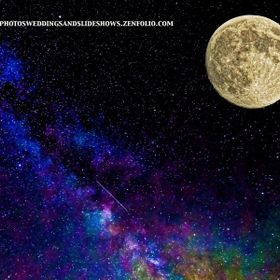

robertneiszer
FollowStars photographed by a tree at our pond on Dec 18-14 using a 35mm f1.8 prime lens.
Stars photographed by a tree at our pond on Dec 18-14 using a 35mm f1.8 prime lens.
Read less
Read less
Views
367
Likes
Categories
Same photographer See allBehind The Lens
Discover more photos See all
Behind The Lens
Location
At home where I live in south western Ontario, Canada in the country.Time
I took this on Dec 18th, 2014 at 11:03pm in my backyard.Lighting
If you see the stars out grab your camera & a good fast lens with a with a low f stop, I used a 35mm at f 1.8 so I could grab as much light in as possible. Your camera will see more than your eye when it comes with the stars so even if you don't think there's a lot there to photograph try & see, you might be surprised.Equipment
Tripod, camera (a sony a57), & a fast 35mm prime lens at f 1.8 .Inspiration
I have an eye for things I'm told, astrophotography always looks good & I just knew the stars were out, I looked in that direction & thought yeah that would probably look good & took the shot.Editing
Yes, I photograph in RAW, & process the photo in photoshop, then if need be (like this photo), in another photo program called Intensify (for macintosh only as far as I know) to bring out even more that I couldn't with just photoshop. Just don't overdo it as you can ruin a photo with to much post processing noise.In my camera bag
My cameras, & different types of lenses for different things to photograph with, a tripod (when I can) & a flash & video light for various types of photography in dark areas if that came up.Feedback
Get an eye for things & not just look at everything so generally. Sometimes the things that are so common can sometimes be uncommon if you know where to look. Some luck can help too (ie, capturing a shooting star flying straight through the milky way galaxy as an example that I have in my gallery also ). As for lenses in astrophotography, a fast lens can help, but it not need to be a very fast lens, if you have a super wide angle lens, the better, as you can capture more in a shot, you just have to expose your sensor more in time then you would with a lens of a low f stop of 1.4, 1.8, 2.8 etc. . I might add, if you can afford a full frame camera get one as you won't have to contend with as much noise as you do with a crop sensor camera when processing an image. It can be done, like in this image, but I heard/read it's better if you have a full frame sensor. One other thing, & it's been said elsewhere too, you have to like what you're doing, or else there's no point, & it will show it in your work. Good luck & have a good day, :) .











































